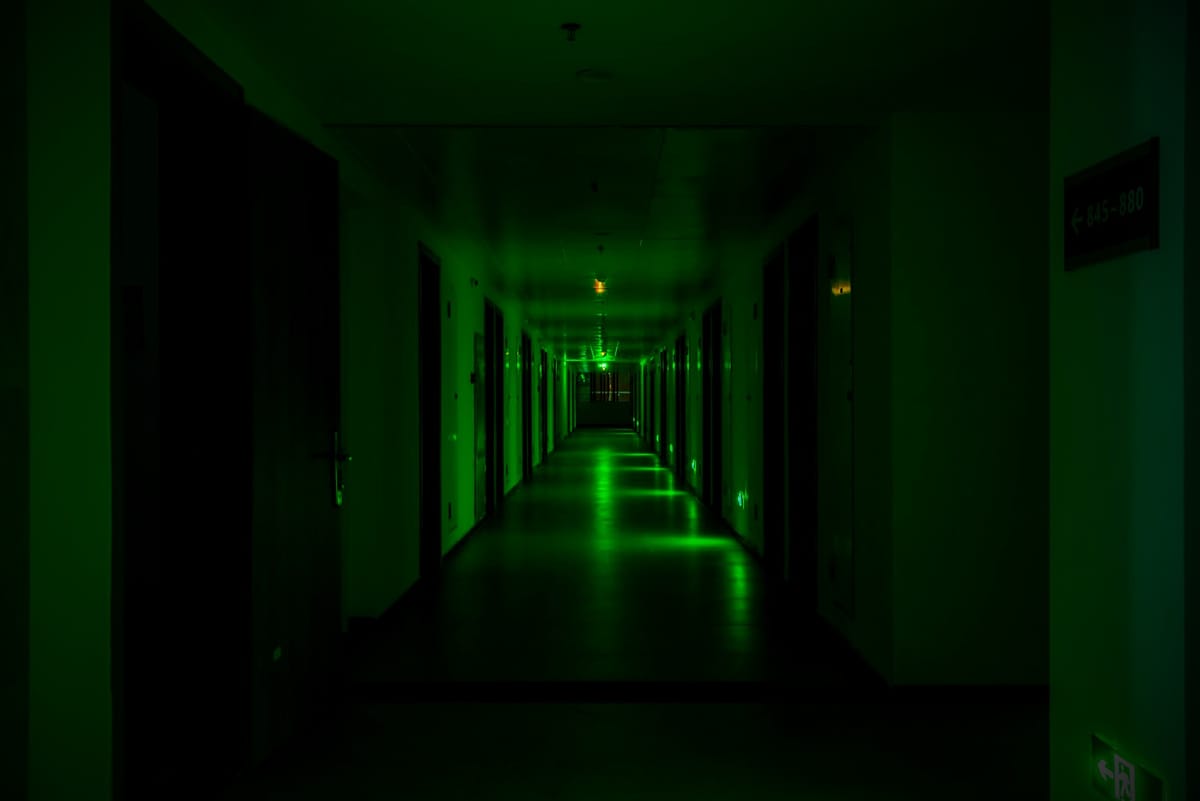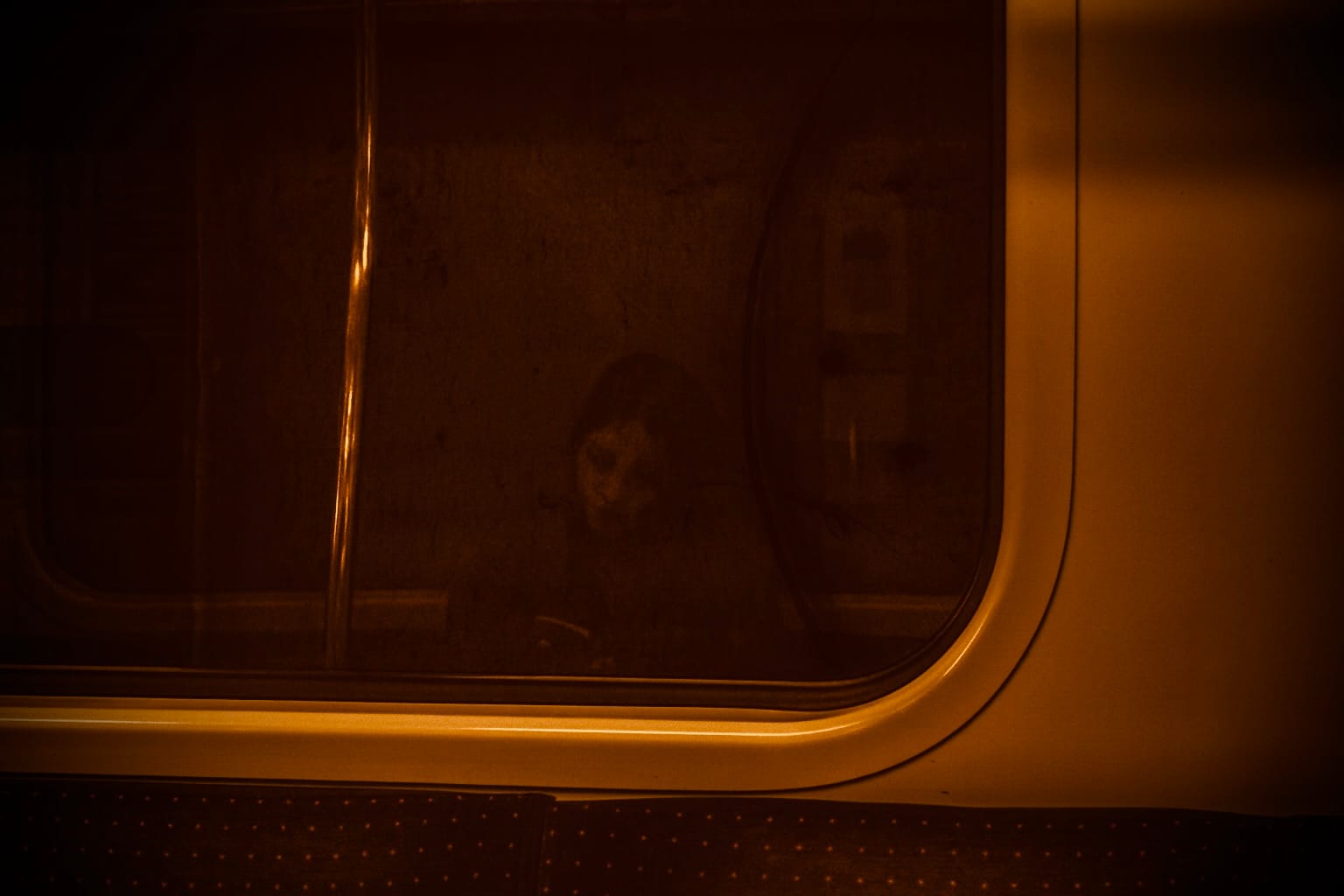On the People We Refuse to See
This morning on the train, I caught my reflection in the window—soft, wavering. The bounce and clack of the tracks made me flicker until I didn't recognize myself. I looked like someone you'd forget even while staring right at them. A pencil sketch someone started but never bothered to finish.
The reflection reminded me of something. Yesterday, scrolling through a Zoom recording from last month’s all-hands meeting, I found myself in the grid—camera on, fully present. But I couldn't remember being there. My face floated in its assigned square, nodding at appropriate intervals, while my mind had been elsewhere entirely. Even to myself, I had become background.
In crowded spaces, I sometimes wonder what people register when they glance my way—if they do at all. Am I a passenger, or just a pause in the mundane pattern of seats?
At the grocery store last week, I stood comparing overpriced olive oils when a woman wheeled her cart straight toward me. I stepped aside. She reached through the space where I'd been standing, her sleeve brushing my arm as she grabbed a bottle. No acknowledgment, no apology. Just a smooth navigation around a breathing obstacle. After she left, I stood half-frozen, hand on the shelf, wondering if I cast a shadow at all.
This invisibility accumulates in small ways. The barista who looks through me to the next customer while I'm still swiping my card. The neighbor who waters his plants every evening at six, our schedules intersecting perfectly, who has never once lifted his eyes. The colleague who introduces everyone at the meeting except me, then catches herself—"Oh, and Dean"—as if I'd just materialized.
Like my predecessor's files, slowly being overwritten. Like the coffee ring on my desk, fading to suggestion. Like the second spoon, gone before anyone noticed it was there.
Urban life, I'm told, demands this—an instinctive filtering. Georg Simmel wrote about the metropolitan mind's necessary indifference—a protective shell against the overload of seeing too much, feeling too much. People become scenery to each other, abstracted into motion and form. It's not personal. Just a system keeping itself intact.
I believe that. Most days. And yet—this morning, juggling coffee and a laptop bag, I held the door for a woman balancing her own precarious arrangement—paper bag, phone, umbrella. She passed through without looking up, trailing lavender hand lotion and hurry. I kept my palm against the frame a moment longer, feeling the door's weight, its quiet insistence on closing.
These are the small maintenances I perform without thinking. Reaching the top shelf item for someone stretching on tiptoes. Offering my seat to exhaustion when I see it. Chasing after a dropped wallet, knowing I'll likely be met with suspicion before relief. Not kindnesses exactly—more like automatic responses to gaps in the world's attention. The things that need doing while everyone's looking elsewhere.
A child on the train once stared at me like I was a story he hadn't heard before. Direct, unfiltered attention. His mother tugged his sleeve, whispered for him not to point, and like that, I dissolved back into the scenery. But for those few seconds, I felt my edges sharpen, like adjusting the focus on a camera until the subject resolves.
Ralph Ellison knew something about this kind of invisibility—not as absence but as refusal. Others' refusal to see what's plainly there. At work, I've started to notice how this invisibility operates, even in the hyper-visible world of video calls. We perform presence while remaining fundamentally unseen. My laptop’s previous owner, whose worn E key and abandoned files I inherited, was probably visible right until the moment she wasn't. Then the system closed around her absence like water.
There's a particular exhaustion that comes from being half-seen. Not the dramatic burden of total invisibility, but the uncertain labor of existing at everyone's periphery. Like those particles in physics that only become definite when observed—otherwise existing in a state of probability, maybe there, maybe not. The reluctant drawer that won't open all the way might understand this—present but withholding, there but not there. I've always belonged in those overlooked spaces, comfortable where no one's watching. Neither spectator nor actor.
Today, at the elevator, someone actually saw me. Met my eye, nodded—not that automatic, dislikable thing people do when you're just in their way, but real recognition. Like I'd suddenly become solid enough to acknowledge. These moments don't fix anything. Still, I find myself collecting them. Small proofs I was here.
The door I held this morning closed behind me without sound. No echo, nothing. Just space sealing itself back up.
But her lavender scent remained. Some small evidence we'd crossed paths, even if she never knew it. A trace that meant nothing to her, something to me—both truths coexisting in the same held door, the same empty spatial moment. Recognition and its absence, both equally real in the quiet mathematics of existing.
Even shadows leave traces, it seems.
Even the half-seen.
— Dean Bowman
Tuesday, 19 August 2025



